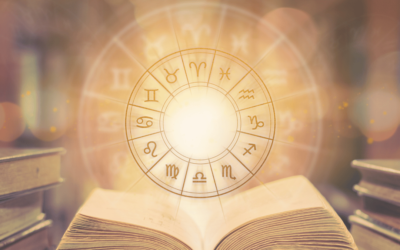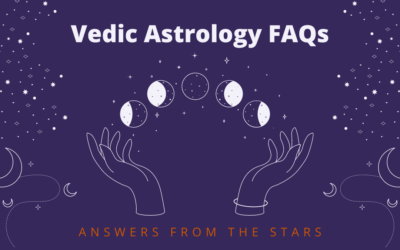Journey Through Time: Exploring the Ancient Texts on Vedic Astrology
Embark on a journey through time as we delve into the sacred texts that lay the foundation of Vedic Astrology. These ancient manuscripts, steeped in mysticism and wisdom, hold the keys to unlocking the cosmic mysteries that have guided humanity for millennia. Join us as we explore the timeless wisdom of the Ancient Texts on Vedic Astrology and uncover the timeless truths that continue to shape our understanding of the universe and our place within it.
Table of Contents
Introduction
Ancient Texts on Vedic Astrology are the cornerstone of Jyotish, providing the foundational principles and insights that continue to shape the practice today. These texts, revered for their wisdom and depth, offer a window into the cosmic mysteries and guidance for seekers on their spiritual journey.
The Vedas: Foundation of Vedic Astrology

The Vedas, ancient texts revered as the foundational scriptures of Hinduism, serve as the cornerstone of Vedic Astrology, providing the philosophical and cosmological framework upon which this ancient astrological system is built. Comprising a vast collection of hymns, rituals, and spiritual teachings, the Vedas offer profound insights into the nature of the universe, the cycles of time, and the interconnectedness of all beings. Within the Vedas, particularly in texts like the Rigveda, Yajurveda, and Atharvaveda, one finds references to celestial phenomena, planetary movements, and the cosmic order, which form the basis for understanding the principles of Vedic Astrology.
While not exclusively focused on astrology, the Vedas contain hymns and verses referencing celestial phenomena and their significance in human life. The Rigveda, in particular, includes hymns dedicated to celestial deities such as Surya (the Sun) and Chandra (the Moon), reflecting the ancient understanding of the cosmic forces at play. Moreover, the Vedas introduce critical concepts such as karma (the law of cause and effect), dharma (righteous duty), and the interconnectedness of the macrocosm and microcosm, which are central to the astrological interpretations and spiritual guidance provided by Vedic Astrology.
Thus, the Vedas serve as the sacred foundation upon which Vedic Astrology unfolds, offering seekers a profound system for understanding the divine influences in their lives and destinies.
The Jyotish Shastra: Ancient Texts on Vedic Astrology

The Jyotish shastras, or astrological scriptures, form the backbone of Vedic Astrology. The Jyotish Shastra, often called the core texts of Vedic Astrology, encompasses a rich repository of ancient scriptures and treatises that form the foundation of this sacred astrological tradition. These texts, written in Sanskrit and spanning thousands of years, provide intricate insights into the celestial forces, planetary movements, and cosmic energies that shape human destinies.
Among the key Jyotish Shastra texts are the Brihat Parashara Hora Shastra, authored by the sage Parashara, which serves as a comprehensive guide to Vedic Astrology principles and practices; the Jataka Parijata, attributed to the sage Vaidyanatha Dikshita, which focuses on natal astrology and birth charts; and the Phaladeepika, written by Mantreswara, offering profound insights into predictive techniques and planetary influences.
The classics such as Brihat Jataka, Saravali, and Hora Sara further enrich the understanding of Vedic Astrology with their detailed explanations of astrological principles, planetary significations, and remedial measures.
The Role of Sages and Seers

Ancient sages and seers played a pivotal role in codifying and transmitting the knowledge of Vedic Astrology. Throughout the millennia, sages and seers, known as rishis, have delved into the mysteries of the cosmos, studying the celestial bodies and their influences on earthly existence. It is believed that these enlightened beings received divine revelations and insights into the universe’s workings through deep meditation and communion with higher realms.
Sage Parashara is credited with compiling the Brihat Parashara Hora Shastra. At the same time, other luminaries, such as Jaimini, Bhrigu, and Varahamihira, authored sacred texts and treatises on astrology, which form the foundation of Vedic Astrology. These sages drew upon their deep spiritual insights and intuitive wisdom to unravel the cosmos’ mysteries and offer humanity guidance. Their profound wisdom and intuitive understanding of cosmic principles have guided astrology practitioners and seekers of spiritual truth for millennia, shaping the spiritual landscape of Vedic Astrology and illuminating the path towards self-realisation and celestial harmony.
Thus, the role of sages and seers in Vedic Astrology is not merely historical but continues to inspire and inform the practice of astrology, offering profound insights into the mysteries of existence and the divine order of the cosmos.
Ancient Manuscripts and Palm Leaf Scrolls
In addition to the core Ancient Texts on Vedic Astrology, numerous manuscripts and palm leaf scrolls contain valuable astrological insights. These ancient documents, often written in Sanskrit or other ancient languages, offer a treasure trove of knowledge for those willing to delve into their depths. While some of these manuscripts remain untranslated or inaccessible, efforts are underway to preserve and disseminate this invaluable astrological heritage.
Their preservation and transmission through the ages reflect the reverence and dedication of successive generations to safeguard the sacred knowledge of Vedic Astrology, ensuring its continuity and relevance in the modern era.
Astrological Treatises in Other Cultures
Astrology has been practised in various forms across cultures and civilisations throughout history. While Vedic Astrology represents the Indian tradition, other cultures, such as the Babylonians, Egyptians, and Greeks, also developed astrological systems. Despite differences in terminology and methodology, these astrological traditions share common themes and principles, reflecting the universal human quest to understand the workings of the cosmos.
Preservation and Transmission of Ancient Knowledge

The preservation and transmission of ancient astrological knowledge have been facilitated through various means, including oral tradition, written texts, and modern technology. While many ancient texts have been lost or destroyed over time, efforts are being made to preserve and digitise existing manuscripts for future generations. Organisations and scholars dedicated to studying Ancient Texts on Vedic Astrology play a crucial role in ensuring that this ancient wisdom continues to inspire and guide seekers in the modern world.
Conclusion
In conclusion, the ancient texts on Vedic Astrology serve as a beacon of wisdom and inspiration for seekers on the path of self-discovery and spiritual evolution. From the Vedas to the Jyotish shastras and beyond, these texts offer timeless insights into the cosmic mysteries and provide practical guidance for navigating life’s challenges. By studying and honouring the wisdom in these sacred scriptures, we can deepen our understanding of ourselves, our place in the universe, and our connection to the divine.





0 Comments